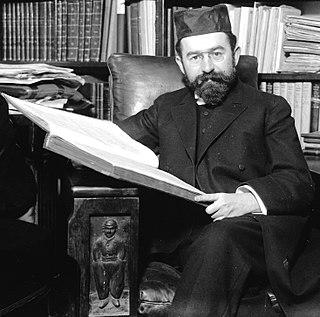A Quote by William Blackstone
Man..must necessarily be subject to the laws of his Creator, for he is entirely a dependent being..And, consequently, as man depends absolutely upon his Maker for everything, it is necessary that he should in all points conform to his Maker's will.
Related Quotes
Of all the animal creations of God, main is the only animal who has been created in order that he may know his Maker. Man's aim is life is not therefore to add from day to day to his material prospects and to his material possessions, but his predominant calling is, from day to day to come nearer to his own Maker.
I believe that the unity of man as opposed to other living things derives from the fact that man is the conscious life of himself. Man is conscious of himself, of his future, which is
death, of his smallness, of his impotence; he is aware of others as others; man is in nature, subject to its laws even if he transcends it with his thought.
MORAL LAW, Evidence of.- Man has been subjected by his Creator to the moral law, of which his feelings, or conscience as it is sometimes called, are the evidence with which his Creator has furnished him. ... The moral duties which exist between individual and individual in a state of nature, accompany them into a state of society ... their Maker not having released them from those duties on their forming themselves into a nation.
If woman alone had suffered under these mistaken traditions [of women's subordination], if she could have borne the evil by herself, it would have been less pitiful, but her brother man, in the laws he created and ignorantly worshipped, has suffered with her. He has lost her highest help; he has crippled the intelligence he needed; he has belittled the very source of his own being and dwarfed the image of his Maker.





























